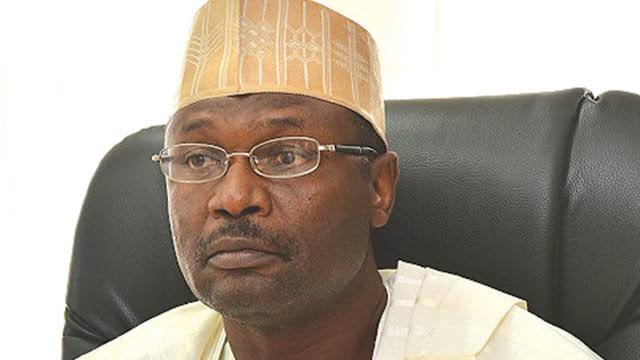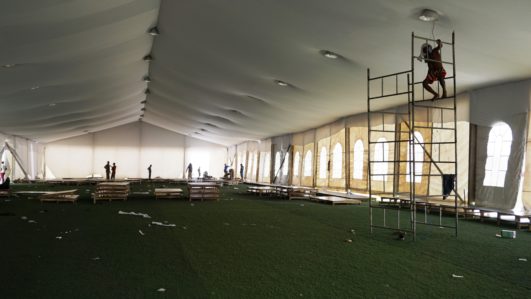WITH 2020 being a mini-election year, the Independent National Electoral Commission, INEC, does not want the controversies and misgivings that trailed past polls to recur. It is calling for vigilance on the part of all stakeholders and adequate punishment for electoral offenders
Currently, the electoral umpire will conduct at least 30 elections this year. Based on court orders, the INEC has scheduled re-run elections to hold simultaneously in 28 constituencies across 12 states of the country on January 25, 2020. And later in the year, it will hold the Edo and Ondo governorship polls. Arising from the 2019 General Election, 807 post-election petitions were filed at the tribunals. Out of this figure, 582 were dismissed, 183 withdrawn by the petitioners, 30 for re-run election and 12 for issuance of certificates of return. This means that the Commission is required by order of the tribunals to conduct re-run elections in 30 constituencies across 12 States of the Federation involving two Senatorial Districts out of 109, 13 Federal Constituencies out of 360 and 15 State Constituencies out of 991. In a majority of cases, elections are to be re-run in just a few polling units, some of them in only one polling unit in the entire constituency. Elections were held in 1,558 constituencies nationwide in the 2019 General Election.

The 30 constituencies
into which re-run elections will be conducted represent 1.92% (approximately
2%) of the total number of constituencies. The INEC said that progress is being
made in this respect because in the 2015 General Election held in 1,490
constituencies (excluding the 68 constituencies in FCT where elections were not
due as was the case in 2019), re-run elections by court order were held in 80
constituencies (5.37%) made of 10 Senatorial Districts, 17 Federal
Constituencies and 53 State Constituencies across 15 States of the Federation.
Two of the 30 court-ordered elections have
been held. To make the remaining 28 court-ordered polls as well as the
off-cycle Edo and Ondo governorship elections credible and peaceful, the INEC
Chairman, Professor Mahmood Yakubu, who blamed politicians and political
parties for undermining process, urged stiff sanctions against election
riggers. Essentially, things needed to make polls credible are adequate
security, sanctioning of election offenders, deployment of modern technology
like the smart card readers, provision of electoral materials and logistics,
and the INEC getting its Acts right. Yakubu said the electoral umpire will
never connive with any party to rig polls as alleged by some political parties.
Lamenting that Attorneys General and Commissioners of Justice of states were
freeing electoral offenders, he said it is inconceivable that INEC would go the
whole hog to put in place electoral safeguards only to turn around and act in
the breach. The main opposition People’s Democratic Party PDP had after the
November 16, 2019, Kogi and Bayelsa governorship elections accused the
electoral umpire of conniving with the ruling All Progressives Congress, APC to
rig elections in favour of the ruling party. Improve on our processes—INEC
chairman However, Yakubu told stakeholders recently that: “The Commission will
continue to improve on our processes in spite of the extremely challenging
environment created by the action and inaction of actors outside our control.
“The Commission is deeply concerned that elections in Nigeria, especially for
executive positions, are increasingly characterised by brazen acts of impunity.
The Commission plans for all elections to be successfully concluded and for the
will of the people to prevail. “It is inconceivable that INEC will make
elaborate arrangements for the deployment of personnel and materials and then
turn around to undermine ourselves in the field on Election Day. Impunity has
become the bane of our elections. The best antidote to impunity is the
enforcement of sanctions under our laws without fear and favour. Where
offenders are not punished, bad behaviour is encouraged. “The Commission will
continue to work with the National Assembly and all stakeholders for the
establishment of the Electoral Offences Commission and Tribunal recommended by
the Uwais Committee on electoral reform (2008), the Lemu Committee on
post-election violence (2011) and, most recently, the Ken Nnamani Committee on
constitutional and electoral reform (2017). “At the moment, INEC is saddled
with the responsibility of prosecuting electoral offenders. We have drawn public
attention to our constraints in this regard. We have no capacity to arrest
offenders and conduct an investigation without which successful prosecution is
impossible. “Over the years, we have worked closely with the Nigeria Police.
Since 2015 we have received a total of 149 case files, including 16 cases
arising from the 2019 General Election. The cases are prosecuted in the States
where the alleged offences were committed. Unlike pre-election and
post-election cases, there is no timeframe for the prosecution of electoral
offenders. A case may go on for several years. Some of the cases were dismissed
for want of diligent prosecution while in some States the Attorneys-General
entered nolle prosequi to get the alleged offenders off the hook. “Even where the
Commission recorded the most successful prosecution of electoral offenders
following the violence witnessed in the Minjibir State Assembly bye-election in
Kano State in 2016, it is unclear how many of the 40 offenders sentenced to
prison with the option of fine actually spent time in jail. The fine was paid
presumably by their sponsors. That is why we believe that the Electoral
Offences Commission and Tribunal will dispense justice dispassionately and
speedily in the same way that the Electoral Court deals with violators in other
countries such as South Africa. We also hope that the security agencies will
get to the root of all violations and support the Commission to prosecute not
just the thugs that terrorise voters and INEC officials, snatch election materials
at polling units and collation centres but their sponsors as well. He
continued: “One critical area that the Commission will engage the National
Assembly is the status of the Smart Card Reader (SCR). Let me reiterate that
the SCR has come to stay. It cannot be jettisoned or abandoned. Rather, the
Commission will seek ways by which its utility in elections can be enhanced for
the triple objectives of verification of the genuineness of the Permanent
Voters’ Cards (PVCs), confirmation of ownership and fingerprint authentication
of voters. “The status of the SCR must be provided for and protected by law.
Similarly, accreditation data from the SCR should be used to determine
over-voting and the margin of lead principle. The judgement of the Supreme Court
on the primacy of the voters’ register as the determinant of over-voting in law
merely draws attention to the lacuna in the electoral legal framework which
must be addressed through an immediate and appropriate amendment to the
Electoral Act. “The Commission will present a proposal to the National Assembly
on this matter as well as other areas in which further deployment of technology
will deepen the integrity of our electoral process.”
Source: Vanguard




